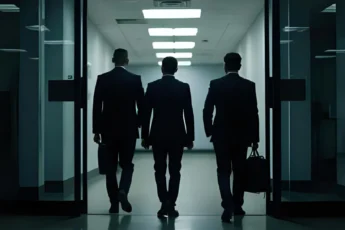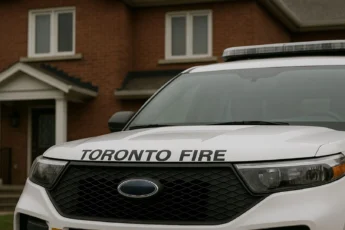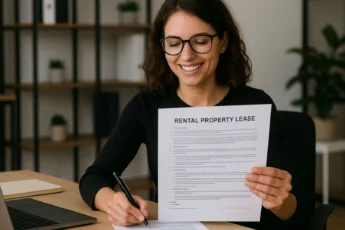This year marks 25 years of property management in Toronto — and with it, countless lessons learned along the way. From early missteps to valuable discoveries, each experience helped shape how we manage properties today.
To celebrate, we’re sharing our top takeaways: the stories, strategies, and property management tips that have helped hundreds of Toronto landlords build trust, stability, and long-term success.
Whether you’re a new landlord or a seasoned investor, these property management tips will help you avoid costly mistakes and keep your rental business running smoothly.
1. Never Rent to a Tenant Who Hasn’t Seen the Suite
When a prospective tenant applies without visiting the property, it might feel convenient — until move-in day. We once approved a tenant based on photos alone, only to have them arrive disappointed. They moved out shortly after, forcing a re-lease. Always insist that applicants see the unit in person before signing.
2. Respond to Tenants Quickly
During a tenancy, things can and do go wrong. Appliances break, the furnace stops working, and sometimes a sewer can back-up. Ignoring the issue is never an option.
Your tenants always need to know what’s going on and are deserving of frequent updates when a repair project is underway. We learned this early on and continually enjoy positive reviews for our service.
Tenants are living in your investment property and want to take care of it. Help them maintain your suite’s value by taking care of any issues they report as quickly as possible.
3. Trust Your Instincts
If something feels off during the application process, it probably is. A seemingly great tenant once turned out to be hosting nightly parties within a week of move-in. Follow your intuition — and back it with proper screening.
👉 Learn more about our 7-Step Tenant Search & Screen process.
4. Expect to Get Your Hands Dirty
Our account manager learned this firsthand during a fall inspection. The outdoor water tap, which needed to be turned off, was tucked away behind a huge storage rack in the backyard.
The only way to get to the tap was under the storage rack. Refusing to be stopped by this obstacle, they had to crawl, army-style, under the rack through the dirt and mud to turn off the tap. So, expect to get your hands dirty.
5. Don’t Renovate While Tenanted
Take a step back and imagine living under a workshop for several weeks or months. The sound of saws and hammers, workers coming and going, and equipment being moved are just some of the annoyances happening around you while your building is being renovated.
Instead of renovating in a tenanted building, try to time your renovations and work on the building when it’s entirely vacant. Fix up multiple units at one time. Otherwise, you’ll have upset tenants leaving you lots of voicemails and emails, and possibly looking for a rent abatement!
6. Act Quickly on Opportunities
Building on the last point, exercise timing. Some landlords put off renovating between tenancies, thinking they’ll renovate during the next vacancy. But that might not be for several years. That’s years of unearned potential income.
Your unit could be making you more money over those several years had you renovated before tenanting. When you have an opportunity to build value, take it.
7. Expect the Unexpected
Keys sometimes work in multiple units within a building. This is normal. But consider this unlikely story we heard several years ago: a tenant stumbles to the wrong unit after a night of heavy drinking.
Their keys unlocked the door even though they are not entering their own home. The unit is occupied by a just showered, naked and wary traveler having just returned home from a flight. The tenants begin interrogating each other, defensively.
The confrontation escalated so much so that both tenants, one drunk, the other nude, end up yelling at each other in the condominium lobby. So, we’re not sure there’s a property management lesson to be learned here, except to expect the unexpected.
8. Double-Check Every Lease Detail
Early on, we made the mistake of signing a 2-year lease but planning for a 1-year term. We anticipated the owners moving back at the end of the term, while the tenants were planning on staying.
When making our tenants aware of the landlords moving back into their rental suite, the tenants immediately refused, citing the 2-year lease. There was nothing we could do! Luckily, the landlords changed their plans and spent another year abroad. It ended up working out for everyone.
9. Prepare for Life’s Curveballs
We pride ourselves on finding the best tenants for your property. But you can’t screen for life’s events. The applicants might be perfect, friendly, quiet, financially stable, and more. But something completely out of their control could change all of that. Be prepared as a landlord for life’s curveballs.
10. Remember: It’s a Business
Like every business, there are costs to owning a rental suite.
- There can be operational costs like maintenance, painting, renovations, water, and yard work.
- There can be marketing costs like hiring a photographer and listing the suite.
- There can also be unexpected costs like paralegal fees or tenancy buy-outs. It’s important to prepare and budget accordingly.
11. Wait for the Right Tenant
It may be tempting to fill the unit and start collecting rent as soon as possible. But remember, that tenant could be with you for life. Wait to find the perfect tenant, even if it means losing out on a month’s rent. It will be worth it in the long run.
12. Budget for Vacancy Periods
With the previous point in mind, you may not always have an income from your property. You might be holding out for the best tenant. Or your suite might not be attracting the right people, or turnover could occur during a difficult time of year.
There are cases where your rental is not tenanted and not collecting rent. Keep vacancy loss in mind while you’re planning your budget.
13. Expect Surprises During Inspections
When a tenant asks you not to enter a room during inspections, it’s a clear indicator that you should probably check what’s happening in that room. It could be dangerous or illegal. But it might just be embarrassing.
Like a room full of adult content and grown-up pleasure toys which a tenant of ours had installed at one of our properties. It’s in your best interest to check the room, but you should mentally prepare for whatever is on the other side.
14. Keep Relationships Professional
Your relationship with your tenants should be mutually respectful and professional. Remember, the rental suite is a business. Blurring the lines between your business life and your personal life can create awkward and toxic situations. It’s best to keep your relationships and your property investing separate. This means:
- Don’t date your tenants
- Don’t befriend your tenants
- Don’t rent to your friends
- Don’t rent to your family
15. Property Management Is a Full-Time Job
One property management lesson a self-managing landlord will quickly learn is not to expect a passive income. Issues arise often and taking care of your investment can start to feel like a second career. Hiring our management team makes your property income a passive income.
16. People Represent You at the Property
When contracting tradespeople, they are representing you at your property. It’s important they know how and what to communicate with your tenants. Be clear with everyone and communicate with your tenants regarding any work being done. And when the workers are at the property, ensure they are polite and represent you well.
17. Verify All Documents
If you are accepting documents directly from a tenant, we recommend double-checking through your own sources. Anything printed and handed to you could be doctored. We won’t go into detail, but we’ve been duped in the past. That property management lesson has been learned, now we employ a 7-Step Tenant Search & Screen.
18. Fix Root Causes, Not Symptoms
Landlords often want to fix up any issues around their unit to satisfy the immediate problem. We always recommend fixing the deeper issue causing immediate problems. Don’t patch up a ceiling without finding the leak. If your pipes freeze every winter, insulate the plumbing. Take care of core issues, don’t just bandage them up.
19. Always Follow the Law
There are multiple situations where you can find yourself tempted to work outside the law. This is never recommended. You’re taking a big risk with a very important investment. Some common examples are:
- Hiring unlicensed tradespeople
- Evicting illegally
- Asking illegal questions to applicants
If you’re not sure how the Residential Tenancies Act applies to you and your investment, contact us – we can help.
20. Trust Your Property Manager
Relating to the last point, heed your property manager’s advice. We’ve been in the business for 25 years – we’ve seen a lot.
21. Always Complete Inspections
Meet your incoming and outgoing tenants and take lots of pictures of the unit before and after. This is crucial when terminating a tenancy, and your photos will come in handy if there are discrepancies between you and your tenant especially if there are damages that warrant compensation.
22. Collect First and Last Month’s Rent Before Handing Over the Keys
Receiving first and last months rent is a financial commitment from the tenant. Only at this point should you feel comfortable offering the signed lease and keys. Otherwise, they may not be fully committed to tenanting your property.
23. Choose the Right Trades
When maintaining, fixing, or remodeling your rental suite, hire the right professional. If you need a plumber, you need a plumber.
Don’t hire a handyman to upgrade an electrical panel. Ensure you’re hiring a properly insured and licensed professionals. This is definitely not a property management lesson you would want to learn the hard way!
24. Don’t Rely on a Handshake
Get any promises in writing. It can be a big headache to argue with your tenants and contractors on what was promised and what is expected. You don’t want to find yourself arguing about what was said in a previous meeting. This lesson surely transcends the learning of property management. Put it in writing.
25. Prepare for Pets
As landlords, we don’t have much say on a tenant’s choice to own pets. So, be aware that you may encounter cats and dogs. And as our account manager has experienced multiple times, dogs can be too friendly. Hopefully, you don’t mind pets. Read more about Renting with Pets.
Bonus: Keep Learning and Improving
After 25 years, we’ve realized that property management is a constant learning experience. Every lease, repair, and conversation offers a new property management lesson. These insights help us deliver exceptional service and keep improving for our clients.
Final Thoughts
Owning a rental property is rewarding but comes with challenges. Applying these property management tips in Toronto can save you time, money, and frustration — and help you build lasting success.
For expert help managing your investment, explore our Property Management Services in Toronto or contact our team.
For more landlord resources, visit Ontario’s Landlord and Tenant Board.



